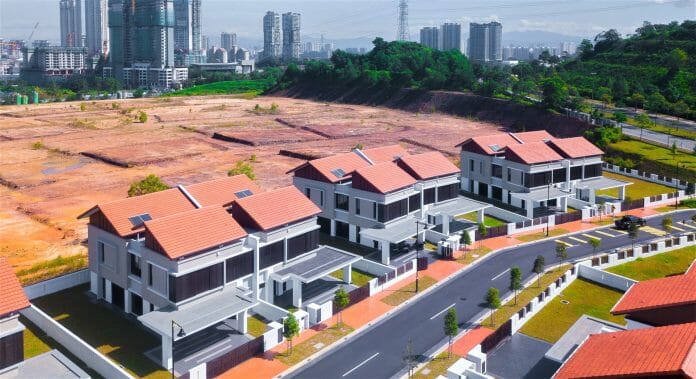The real estate market is constantly changing and reforming each year as the world around it does. If you already own a property you are well aware of the impact a particular market cycle has on net worth. If you are in the process of buying a property the market will dictate how much you will have to pay. To help you understand what drives home prices, this article will address several factors that have an impact on the housing market.
Economic Landscape & Government Policies
A key driver of the local property market is the economic landscape. Slow economic growth generally results in a sluggish real estate market and vice versa.
Some factors that can slow the economy include major global disruptions such as the COVID pandemic, which shut down trade routes and businesses for a significant time. Other factors include inflation, political uncertainty, and natural disasters. It’s worth noting that increased inflation leads to the rising cost of raw materials and further drives property prices up over time.
Although it sounds scary, there are things you can do to protect yourself from the ripple effects of a fluctuating economy. The most reliable strategy is to diversify your investment portfolio. In property, this can look like investing in REITs which are historically a lower-risk investment with better long-term returns.
Looking into different types of REITs with varying allocations is also a good approach, given that different types of properties will be affected by various economic factors. For example, during COVID, the increased demand for healthcare services positively impacted healthcare REITs, while retail REITs may struggle due to consumers moving online for shopping.
While a slow economy could result in more conservative buyers, a strong economy means that people have more money to spend and are more confident in making substantial financial investments such as purchasing properties. Positive economic conditions are indicated by an increase in employment levels, a healthy international trade landscape, and a stable political environment.
Another factor that can influence the property market is government policies which can affect the demand for and pricing of real estate in Malaysia. In general, government policies tend to be shaped as a response to prevailing economic conditions.
Such policies include subsidies, deductions and rebates on taxes, tax credits, foreign investment policies, and local incentives such as the Home Ownership Campaign (HOC) from 2020 to 2021, which spurred home buyers.
Another key driver of the property market is interest rates. For example, the Overnight Policy Rate increase in 2022 affected buyers’ appetite to purchase properties. The OPR is still on the rise, which impacts a buyer’s ability to secure a loan and as a result causes a ripple effect to supply and demand as well.
Importantly, government investment in public infrastructure can also generate demand in certain locations and drive property prices up. After all, a mature neighbourhood with public transport access and amenities tends to be more attractive to buyers.
Supply & Demand
A fundamental principle of economics is supply and demand. When there is high demand and slow supply, prices go up. On the other hand, an excess of supply and minimal demand will drive prices down.
This simplified explanation applies just as well to the real estate market. Two main factors that can affect demand is the consumer demographics and sentiments. To start with, changes in a population’s demographics over time can affect the demand for property.
For example, an ageing population that is mostly entering retirement may be less interested in purchasing new property compared to a younger population who are just entering the workforce and have more earning years ahead of them.
Rising income levels also mean more people are likely to invest in property compared to depressed incomes during a recession.
Another important consumer-related factor that affects demand is confidence in the economy and political landscape.
If the economy appears to be on an upward trajectory, consumer confidence increases. This is also true for a stable political landscape. Confident consumers are more likely to become buyers. However, in an uncertain environment, confidence plummets.
In this case, consumers tend to be more conservative and are less likely to take on a major financial investment such as properties.
Additionally, consumer intent when purchasing property can affect the market as well.
Are buyers interested in getting a property for their own use or for rental purposes? Is it a retirement plan or an investment? This will affect the demand for certain types of properties over others and in different locations.
For example, the demand for properties in areas near universities may be consistently high as buyers would want to purchase lettable units.
Importantly, property prices in popular locations like city centres will likely continue to grow even if other regions experience a downturn due to economic factors as there will always be demand for properties in mature neighbourhoods.
City centres are bustling hubs that will consistently see high property demand due to being heavily populated. The Malaysia Property Market Report shows there is an increased demand for a rental property by 57.91% in 2022 from the previous year.
This is compared to a supply growth of 13.78%. It does appear that the rental market will continue to expand as home ownership becomes more challenging due to inflation, rising material costs, and interest rates.
In terms of buyers, the report shows a 2.87% uptick in property prices year-on-year while supply increased by 13.21%. Demand increased as well by 7.93%, indicating growing consumer confidence.
Though growing at a slower rate, consumer interest in purchasing properties shows an upward trend after the challenges of the last two years. Additionally, as the demand rate for real estate catches up to supply, prices will only shoot up more.
So as the economy begins to recover despite rising costs and inflation, it’s a smart next step for buyers and investors to look into expanding their property portfolio.
-IProperty










